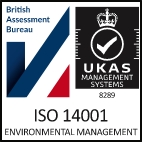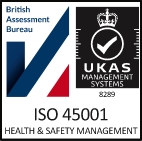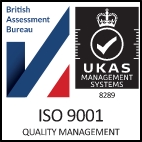Navigating Biodiversity Net Gain: A Guide for Minor Planning Applications
Understand the April 2024 Biodiversity Net Gain (BNG) requirements for minor planning applications. Learn how Cornwall Environmental Consultants (CEC) helps Cornwall-based developers achieve compliance through expert advice, surveys, and digital tools.
Introduction
Since April 2024, minor planning applications across England—including Cornwall—must demonstrate a minimum 10% Biodiversity Net Gain (BNG), secured and monitored over a 30-year period. If you’re planning a small housing development, home extension, or local business premises in Cornwall, these new rules apply to you.
At Cornwall Environmental Consultants (CEC), we guide applicants through the entire BNG process—from site surveys to planning compliance. In this article, we explain your responsibilities and how tools like our BNG Estimating Tool and CEC Knowledge Hub video guide can help you simplify planning in line with Cornwall’s environmental commitments.
What Is Biodiversity Net Gain (BNG)?
Biodiversity Net Gain is a legal requirement ensuring that developments leave the natural environment measurably better than before. For projects in Cornwall, this means:
- Delivering at least a 10% increase in biodiversity value post-development.
- Ensuring habitats are managed and monitored for 30 years.
- Calculating impact and improvement using DEFRA-approved biodiversity metrics.
BNG may be delivered on-site, or, where space and design limit opportunities, through off-site units.
Statutory Requirements for Minor Planning Applications
From April 2024, planning authorities—including Cornwall Council—require:
- Clear demonstration of 10% biodiversity net gain.
- Submission of BNG data and habitat assessments during your planning application.
- A commitment to long-term management via conditions or legal agreements.
These rules apply to most small projects, such as single plots, annexes, or small business premises.
The Role of Ecologists in BNG Compliance
CEC’s professional ecologists work across Cornwall to help you comply with BNG through:
- Site habitat surveys and condition assessments.
- Establishing the baseline biodiversity value before development.
- Applying project data to predict post-development biodiversity.
- Preparing detailed reports, mapping, and metric calculations required for submission to Cornwall Council.
Early involvement with our team helps you avoid delays and unnecessary costs.
What Developers in Cornwall Must Provide
To ensure your site complies with Cornwall’s planning protocols, CEC will need:
- A clearly defined red-line boundary of your development.
- Digital layout plans for importing into GIS.
- Site access for carrying out ecological assessments.
You can also pre-assess your site using our BNG Estimating Tool to better understand your project’s position before engaging formally.
BNG Exemptions for Minor Applications
Some minor projects in Cornwall may qualify for exemption if:
- The development affects less than 25m² of vegetated habitat or fewer than 5 metres of hedgerow.
- There’s no impact on priority habitats, which are rare or ecologically important in Cornwall.
- The build is a self-build project, where the applicant is also the future occupant—though Cornwall Council may apply conditions.
Always verify with the local planning authority if your project may be exempt.
Private Gardens and BNG: What Counts in Cornwall
While many Cornwall residents value biodiversity in gardens, the rules limit their impact on BNG scores:
- New gardens are classified as low distinctiveness habitats.
- Only retained habitats (e.g., existing trees or scrub) from the pre-development baseline can be credited—not enhancements.
- DEFRA’s metric does not allow credits for planting wildflowers unless they are part of a retained habitat.
Choosing the Right Metric for Your Cornwall Site
DEFRA offers two tools: the Small Sites Metric and the Full Statutory Metric. However:
- The small sites metric assumes moderate condition, often overestimating site value.
- CEC recommends using the full statutory metric for accuracy and consistency with Cornwall Council expectations.
This helps avoid under-delivery and supports robust planning applications.
Off-Site BNG Units: Options for Cornwall Developers
If BNG cannot be achieved on-site, developers have two options:
- Purchase off-site units through recognised providers.
- Use alternative land (if available in Cornwall) to deliver BNG independently.
Whichever option you choose, you’ll need to sign a legal agreement and ensure 30 years of monitoring.
CEC can advise on suitable off-site solutions tailored to Cornwall’s local environment and your project scale.
Post-Planning: Meeting BNG Conditions in Cornwall
After permission is granted by Cornwall Council, developers must:
- Submit a BNG Plan (based on a DEFRA template).
- Prepare a Habitat Management and Monitoring Plan (HMMP) for all significant biodiversity contributions.
- Finalise legal agreements for off-site units, if applicable.
Monitoring will continue for 30 years, with periodic checks and reporting.
FAQs
What is the 10% BNG requirement?
A legal requirement to improve the site’s biodiversity value by at least 10% post-development.
Can I use garden improvements for BNG?
Only if part of the baseline habitat is retained. New gardens are considered low distinctiveness and offer limited BNG value.
What’s an HMMP?
A document detailing how you’ll manage biodiversity features over 30 years, ensuring their continued value.
What if I can’t meet BNG on-site?
You can explore off-site solutions. CEC will help you evaluate viable options across Cornwall.
How do I estimate BNG?
Use our BNG Estimating Tool to start assessing your development.
Conclusion
Whether you’re submitting a new home application in St Austell, converting land near Truro, or developing a plot in Penzance, Cornwall Environmental Consultants (CEC) is here to help. As Cornwall’s trusted ecological planning partner, we support developers through:
- Expert BNG guidance and surveys.
- DEFRA metric analysis.
- Planning-ready reporting.
- Access to digital resources via our Knowledge Hub.
With early planning, expert support, and smart tools, you can confidently meet your BNG obligations and contribute positively to Cornwall’s rich biodiversity.







